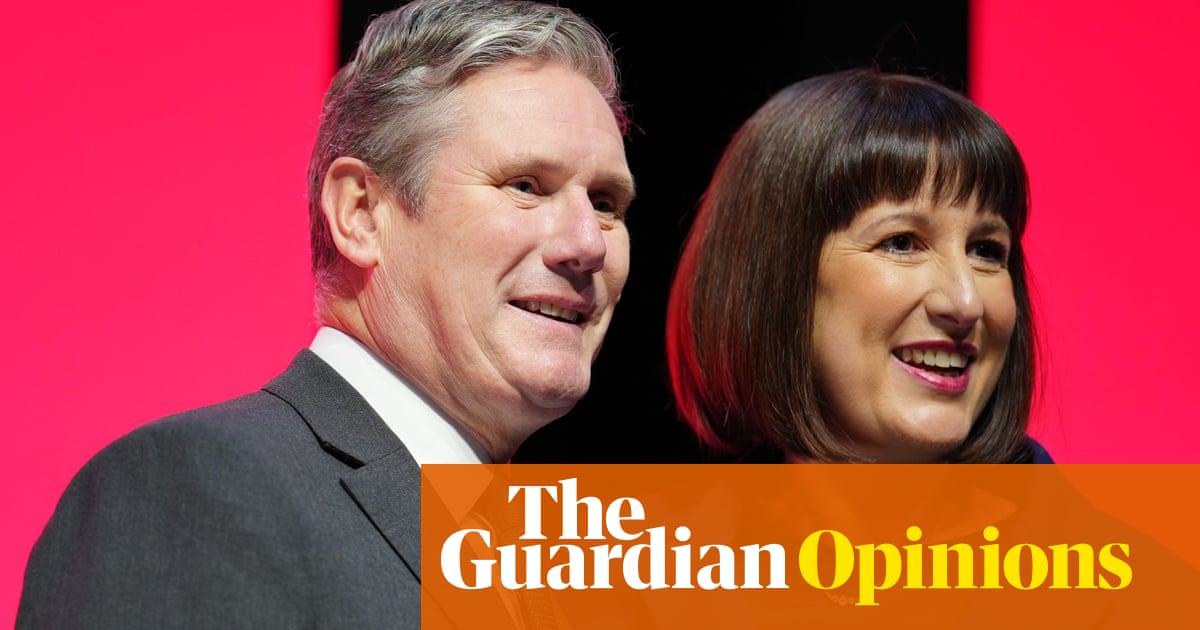
Labour needs to talk about women. If I say that, your thoughts probably jump to one particular debate. You may be thinking about JK Rowling, you may be thinking about David Tennant. You are thinking about how the next government is going to respond to the tension between those who recognise the reality of biological sex, and those who want to ensure that trans people can live comfortably in their chosen gender.
For sure, that is a discussion that Labour cannot sidestep. The next government needs to have the courage to clarify the law on sex and gender and help to steer better ways through areas where rights conflict.
But this is far from the only conversation Labour needs to have about, or with, women. It’s not the only area where courage is required. These 14 grinding years of Conservative rule have been devastating for too many women.
For a start, we need to talk more about poverty. Child poverty has figured a bit in this election campaign. But let’s not gloss over the link between child poverty and the poverty of their mothers. One charity said recently that three in four of those using its food banks are women. Women are poorer than men, they work in lower-paid roles, or for fewer hours, or they are not in paid jobs at all – a quarter of women are “economically inactive”.
Being economically inactive does not mean that women are not working harder than ever. So this also needs to be a conversation about care. As public services have been systematically starved of funds over the past 14 years, women have been picking up the pieces. Mental health services that are overwhelmed, youth services that have disappeared, social care and childcare that is too patchy and expensive. These gaps are often filled by low-paid women, who are expected to go above and beyond for little reward, or indeed by women who work unpaid in families and communities, providing the care that is needed but not valued, to look after those who are being let down.
If the next government is to tackle these twin crises of poverty and care, it’s not enough to wait around for a fleeting bubble of economic growth. We need to talk about wealth, and how to redistribute it right now. There is growing recognition that wealth in the UK is hoarded by a few people. What often goes unsaid is that these few are more often men. While the pay gap has narrowed, the wealth gap widens. In the UK, the average man has nearly £100,000 more in wealth than the average woman. Now is the time for the next government to grasp the nettle of this deep unfairness, and start putting forward plans to rebalance our out-of-kilter economy.
To do it justice, the Labour manifesto contains a brave commitment on violence, with a pledge to halve levels of violence against women and girls within a decade. It’s good to see this, because too many women are sick and tired of living in fear. Too many women are being let down by the collapsing criminal justice system. I’m not convinced, though, that this commitment can materialise without a braver plan to step up investment in services. Too much support for survivors is carried out by women working at the outer edges of their own capacity.
The same is true for any pledge to tackle misogyny. It’s easy to talk fine words about pushing back against the online “incels”, but if we are going to walk men back from hate, that’s also going to take resources. In law, policing and courts, yes, but also investing in education and youth services, in teachers and social workers, in those who care as well as those who punish.
Of course, none of these conversations will get social media going in the way a quickfire round of “what is a woman?” does. But feminists know that inequality and violence are not abstract issues. For too many women, this is everyday reality – ground down by poverty, exhausted by caring in an uncaring world, broken by male violence.
And, when crises hit, such inequality deepens further. We saw during the pandemic how violence against women rose and the burden of caring for women also increased. As the climate emergency gets under way, more crises loom on the horizon, from food shortages to weather shocks.
Over the past few days, I’ve been reading a gut punch of a novel, Briefly Very Beautiful. In it, Roz Dineen explores a post-apocalyptic world that is all too recognisable as our possible future if we continue on the path we are on. A world in which violence and division rule, and a mother keeps going, desperately trying to love and care for her children. At the end, the author quotes the 2023 statement from the Intergovernmental Panel on Climate Change: “There is a rapidly closing window of opportunity to secure a livable and sustainable future for all (very high confidence).” I shuddered as I read her dark vision of what is to come, wondering if I was reading about my daughter’s future.
There is more than one hard question to ask, and more than a few hard decisions to make, but if we are to build a society where women can be safe and equal, we need to have these conversations before it’s too late.
Natasha Walter is the author of Before the Light Fades and Living Dolls: The Return of Sexism












